To accompany your Come Follow Me study for May 30-June 5
In addition to reading these chapters from Judges, you may enjoy:
- The video Come Follow Me 2022 LDS (May 30-Jun 5) Judges | Judges’ Jumble Cruise at https://www.youtube.com/watch?v=67xCxACQhxs
- Reading the corresponding material from the Institute Student Manual found in the online Gospel Library
- Reading the remaining chapters from book of Judges, which while probably less spiritually uplifting may give you an increased appreciation for why the Lord was so reluctant to bless the Israelites of that day.
If you would like a Kahoot game related to this material, either for your own amusement or to use with your family or class, click here: https://create.kahoot.it/share/judges-2-4-6-8-13-16/912c472f-b299-4270-9701-56aca8cf30a6
Points to Ponder in Judges 2-4, 6-8, 13-16
1. How did the “judges” of the Old Testament differ from what we normally think a judge to be?

2. What was potentially so good about the system of judges as opposed to a monarchy? In what way did the Israelites abuse the system?
3. Why do you suppose the period of the judges has been referred to as the “Dark Ages” of Israelite history? How does it correspond to much of the Book of Mormon history?
4. Can you find the references to four cycles of wickedness, loss of blessings, humility, and blessings in chapters 2-4 and 6-8 (which don’t include all such cycles recorded in the book of Judges. For example, another such cycle is found in Judges 10:6, 10:7, 10:10-16, and 11:1-33.)
5. What implications does the abysmal situation described in Joshua 2:10 have for us today?
6. Can you find references to at least three notable women in this week’s reading and tell briefly the most notable accomplishment of each?
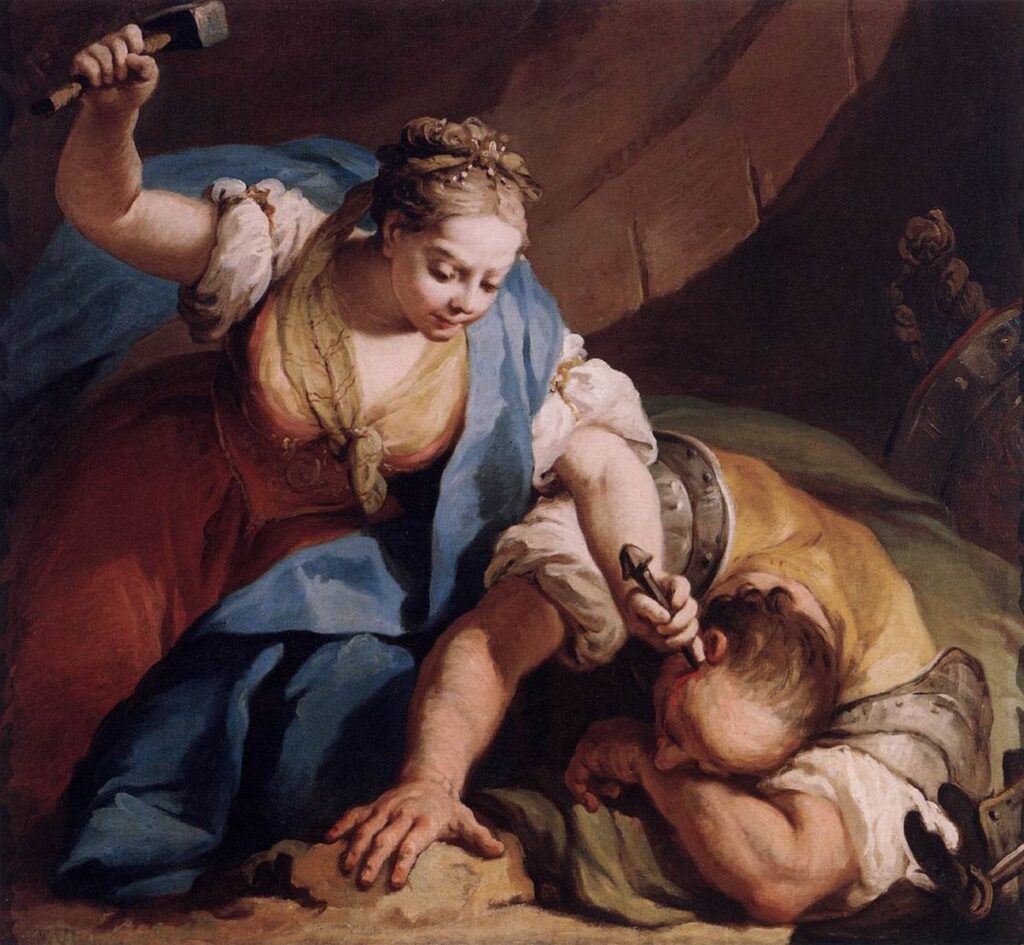
7. If the Lord has opted to give the priesthood and presiding authority at the head of the Church only to men, what is Deborah doing as the one in charge in chapters 4-5? What implications does her career have for women’s rights and responsibilities today?
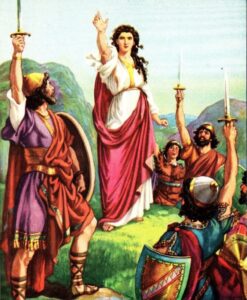
8. Why did Gideon ask twice for a sign (6:17, 6:36-37) after having previously received one? Isn’t sign-seeking the mark of “an evil and adulterous generation”? (Matthew 12:39.)
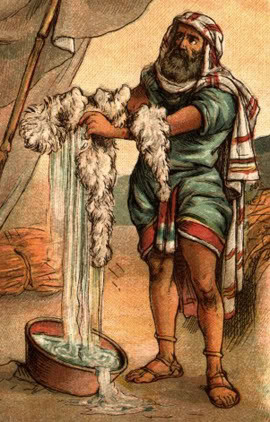
9. Why did Gideon discriminate against those who put their mouths down into the stream to drink? (7:5) Isn’t that a perfectly acceptable way to do it?

10. How did Gideon show his skill in diplomacy as well as his humility in his dealings with the hurt feelings of the Epraimites? (8:1-3) What practical applications could we make of his approach?
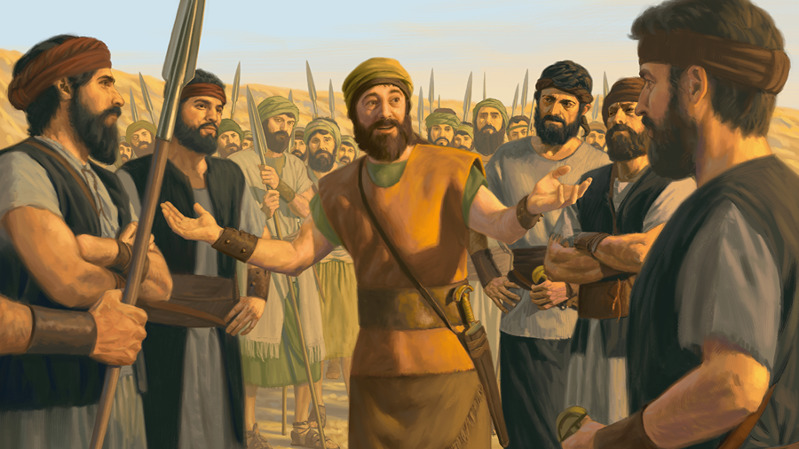
11. What serious mistake did the citizens of Succoth and Penuel make, and what can we learn from it?
12. How many different lessons could you teach from the story of Samson?
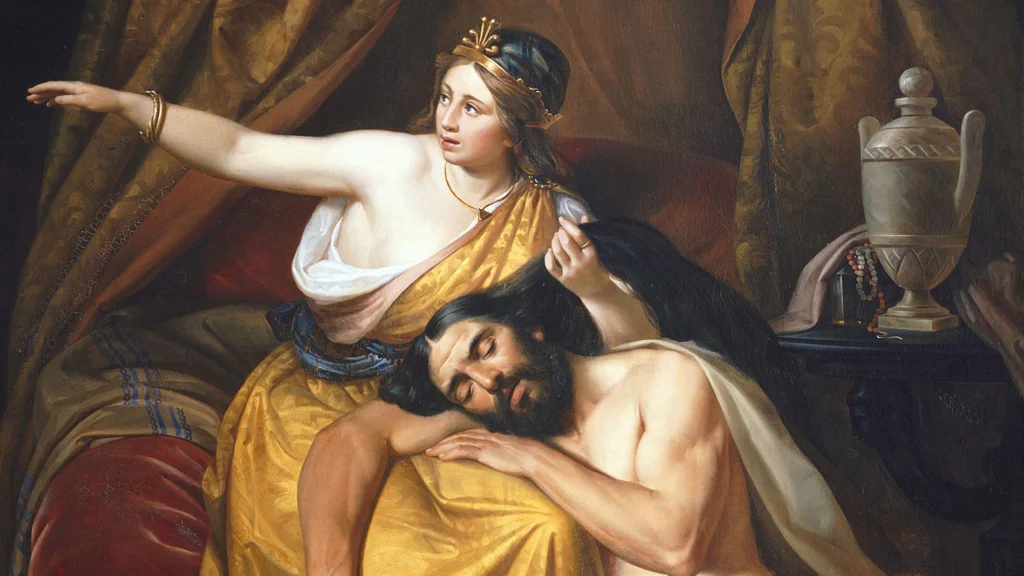
Possible Answers to Points to Ponder in Judges 2-4, 6-8, 13-16
1. How did the “judges” of the Old Testament differ from what we normally think a judge to be?

These “judges” were more military heroes, raised up to free Israel from bondage to one of the pagan nations around them, than the kind of judicial officers we normally think of. They were secondarily “governors,” much as the “chief judges” of the Book of Mormon. But Israelite government in those days was very limited and decentralized, and there seems to have been little continuity in office from one “judge” to another. Rather, the Lord raised up a new judge when oppression required it and repentance was sufficient to warrant it.
2. What was potentially so good about the system of judges as opposed to a monarchy? In what way did the Israelites abuse the system?
The system of judges provided for maximum freedom and individual responsibility. No king would tax their income or property or wage pointless wars at their expense. The Israelites, however, turned liberty to license and lived lives of debauchery and idolatry.
3. Why do you suppose the period of the judges has been referred to as the “Dark Ages” of Israelite history? How does it correspond to much of the Book of Mormon history?
This was a time of moral degradation, religious apostasy, and military oppression at the hands of foreign powers. Like the ancient Nephites and Jaredites, the Israelites of this time went through repeated cycles of wickedness, punishment, humility, and blessings.
4. Can you find the references to four cycles of wickedness, loss of blessings, humility, and blessings in chapters 2-4 and 6-8 (which don’t include all such cycles recorded in the book of Judges. For example, another such cycle is found in Judges 10:6, 10:7, 10:10-16, and 11:1-33.)
- 3:7, 3:8, 3:9, and 3:9-11
- 3:12, 3:12-14, 3:15, and 3:16-30
- 4:1, 4:2, 4:3, and 4:4-24
- 6:1, 6:1, 6:6, and 6:8-8:28
The cycle is explained in general terms in 2:11-19.
5. What implications does the abysmal situation described in Joshua 2:10 have for us today?
It would suggest the importance of our doing a better job of teaching our own children by word and example than the ancient Israelites evidently did with theirs.
6. Can you find references to at least three notable women in this week’s reading and tell briefly the most notable accomplishment of each?
- Deborah: prophetess and judge who led the army to victory over the Canaanites (4:4-24)
- Jael: Killed Sisera (4:17-21)
- Manoah’s wife: Was visited by an angel and gave birth to Samson (13:3)
Others in the Book of Judges would include the unnamed woman in 9:53 who dropped a millstone on Abimelech and Jephthah’s daughter (11:37), who agreed to be sacrificed in order to avoid her father’s having to violate his oath. (A strange story, of which we may not have complete details. See the Institute student manual for an interesting possibility.)
7. If the Lord has opted to give the priesthood and presiding authority at the head of the Church only to men, what is Deborah doing as the one in charge in chapters 4-5? What implications does her career have for women’s rights and responsibilities today?
Deborah did not hold the priesthood and was not the Israelite equivalent of “president of the Church.” As a “prophetess,” she had revelation from God, but so should every faithful man and woman. There is nothing inherently wrong with her serving as Israel’s judge, just as Latter-day Saints would have no problem with a righteous and competent woman’s being elected as president of the country or governor of a state today. Her favorite title, however, seems to have been that of “mother in Israel.” (5:7) Women today, with the exception of being ordained to the priesthood, can and should do anything and everything their talents and opportunities may dictate, provided it is consistent with their greatest opportunity and responsibility of motherhood.
8. Why did Gideon ask twice for a sign (6:17, 6:36-37) after having previously received one? Isn’t sign-seeking the mark of “an evil and adulterous generation”? (Matthew 12:39.)
Gideon was not seeking a sign in order to see a “magic trick” for his entertainment but only to make sure the Lord was really speaking to him. Living as he did at a time when inspiration was scarce and lessons on how to recognize it even scarcer, the Lord honored his request for a kind of visible confirmation which he couldn’t deny. Perhaps for similar reasons the Lord gave early Latter-day Saints such manifestations as the gift of tongues more frequently than He seems to today (other than when it is needed for communication with those who speak a different language).
9. Why did Gideon discriminate against those who put their mouths down into the stream to drink? (7:5) Isn’t that a perfectly acceptable way to do it?
Those who drank with their mouths down in the stream weren’t released because they were sinful but because they were so numerous that the Lord needed to pare the army down to a size that would make it obvious that victory came from Him.
10. How did Gideon show his skill in diplomacy as well as his humility in his dealings with the hurt feelings of the Epraimites? (8:1-3) What practical applications could we make of his approach?
He praised and flattered the Ephraimites that their contributions to the victory had been even greater than his, in that they had captured the opposing leaders, even though they had not been initially summoned to battle. We can similarly praise the accomplishments of others, whether in the Church, the community, our employment, or our homes.
11. What serious mistake did the citizens of Succoth and Penuel make, and what can we learn from it?
They refused to side with Gideon until it was evident his side was going to win. They paid sorely for their cowardice. We need to learn to choose the right even and especially when it is unpopular.
12. How many different lessons could you teach from the story of Samson?
They would certainly include:
- Women can sometimes be more spiritually sensitive than men and are at least as likely to receive divine manifestations and revelation. (13:2-3)
- Dating or marrying out of the faith brings trouble. (Judges 14-15)
- A lack of self-control leads to disaster. (Judges 16)
- Foreordination is not the same as predestination. Samson was evidently foreordained to do much better than he did.
- The Lord can accomplish His purpose even through imperfect people.
- Strength comes from keeping our covenants. (Not from having long hair per se.) (16:20)
- Not all of the Bible was necessarily written by those in possession of all of the facts or who were divinely inspired in all they wrote. For example, it is not clear that the Lord would have prompted Samson to marry a Philistine (14:4) or that the Spirit of the Lord really prompted him to kill 30 men of Ashkelon to take their clothing to pay off a debt to the Philistines who had answered his riddle. Someday we’ll have the full story.
